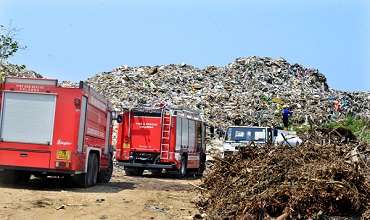Palm oil industry urges SL Govt. to lift ban
The Palm Oil Industry Association of Sri Lanka (POIASL) on Wednesday urged the authorities to repeal the bans and other negative policies in place against this industry, and allow it to do its part to support the Sri Lankan economy, and the Government of Sri Lanka in its medium to long-term economic objectives.
“Ours is a responsible, sustainable, eco-friendly industry that has the potential to transform Sri Lanka’s agricultural sector, and potentially even its agricultural exports, while definitely minimizing our reliance on imported edible oils,” it said in a statement.
The palm oil industry has attracted years of negative propaganda and misinformation, particularly in Sri Lanka. Much of it is based on the experiences of certain countries where uncontrolled cultivation has impacted ecosystems. However, in Sri Lanka there is no such risk of that happening and furthermore, it has never been experienced during 50 years of oil palm cultivation in Sri Lanka.
“The total extent of oil palm cultivation in Sri Lanka is less than 12,000 hectares, entirely on large estates. Compare this with a major producers such as Malaysia with 6,000,000 hectares cultivated, where 40 per cent or more is produced by smallholders. This has helped to drive a boom in rural economies across countries like Malaysia and Indonesia, helping to lift countless millions out of poverty and create a bright and prosperous future. Thus, liberalising the palm oil industry in Sri Lanka will help to strengthen smallholder investment in oil palm cultivation, which will create massive opportunities for economic emancipation and rural development through oil palm cultivation by smallholders. Furthermore, allowing our local industry to flourish will help us reduce our dependence on foreign exchange for the import edible oils, while also helping to strengthen Sri Lanka’s food security,” the association said.
The POIASL has also established ties with other leading producers of palm oil in the world, and these friendly countries are ready and willing to extend support to Sri Lanka in terms of expertise and technical knowledge to further the industry. However, with the present short-sighted and ill-advised bans on palm oil and the cultivation of oil palms, the association is left unable to maximally contribute towards supporting Sri Lanka at this crucial juncture in its economic history.
It said palm oil is one of the most productive and lucrative cash crops available anywhere in the world, and the industry has helped uplift millions of people out of poverty worldwide. In fact, palm oil is the most produced, consumed and traded edible oil in the world, accounting for over 33 per cent of the global edible oil market, with other popular varieties such as sunflower oil, soybean oil and coconut oil all accounting for a significantly smaller portion of the market.
-
Still No Comments Posted.













Leave Comments